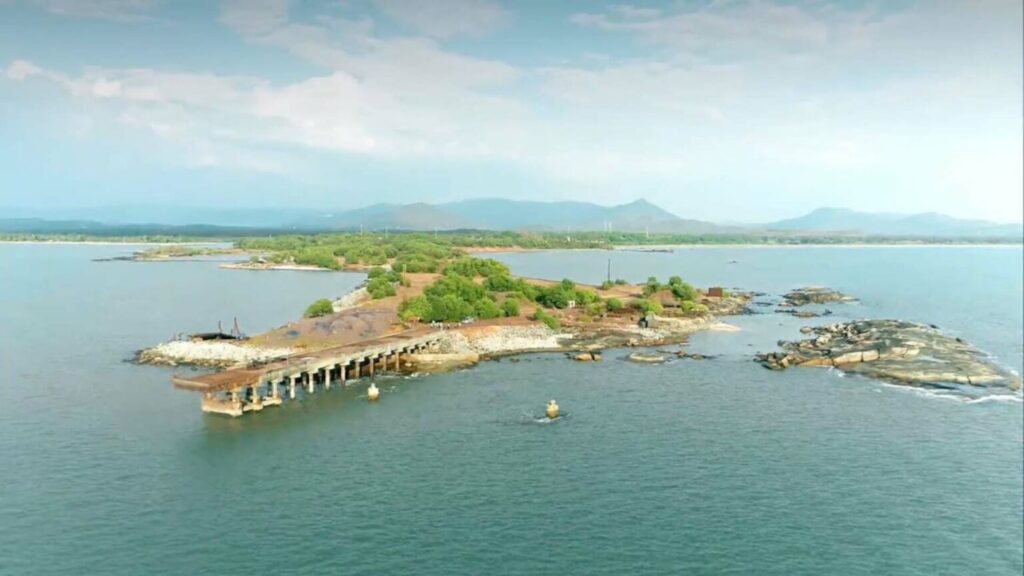BJP was in power in Karnataka and was desperately trying to overthrow the Congress-led UPA, which was pursuing the links of the bomb blasts leading to the Hindutva outfits.
by Sanjay Kapoor
On February 20, 2010, the Karnataka Lok Ayukta police raided a tiny non-descript port in Belekiri and seized documents and computers. Later, the police also took control of a large quantity of illegal iron ore at this poorly guarded port. A few months later, the ore was stolen. On the basis of their findings that emerged out of the seized computer and documents, the Karnataka Lok Ayukta Police discovered a scam worth Rs.50,000 crores (amounting to Rs.100,000 crores today).
It’s an old story, but the people involved are the usual suspects: the port and custom authorities, mining companies that illegally extracted excessive iron ore, transporters and exporters like the Adani group.
This gargantuan mining scam, interestingly, unfolded when the BJP was in power. Though Chief Minister Yeddyurappa and the miners came to grief in this case, the exporters got away – largely scot-free. In fact, Karnataka’s Lok Ayukta, Justice Santosh Hegde, displaying helplessness, had claimed in a media interview that there was little likelihood that any action could be taken on his long fact-filled report. Justice Hegde knew about the powerful and the nexus that cut across party lines and how it had protectors everywhere – politics, police, media and judiciary. Expectedly, when the Congress came to power in Karnataka later, many of those who figured in the FIR were not hauled up. A decade later, neither the banks nor the Life Insurance Corporation (LIC), that subsequently loaned colossal funds to one of the accused, Adani, to buy 13 ports and airports, seemingly did due diligence or pay close attention to the damaging mining probe report. It appeared as if Adani had been given immunity by the government so that he could grow to be one of the richest men in the world.
In fact, the busting of the mining scandal in 2010 by the Lok Ayukta police backed by the forest department should have been enough to puncture the ambitions of many of those who figured on the list of the accused, but it did not play out that way. What is more perplexing is that even when the police team had managed to collect smoking gun evidence of criminality against the accused who had been benefiting from the illegal exports, neither the law enforcement agency nor the judiciary booked the guilty.
The Belekeri scam had also revealed in one of the seized computer floppies a long list of pay-offs to cops, district administration and custom authorities. So detailed was this list that it was possible to weave together which company mined the iron ore, which truck of a transport company (with registration numbers) ferried it, the cops and custom officials (with names) that were paid off. The approach that was adopted ensured that all were greased with bribes that traveled up and down the administrative hierarchy to ensure that the illegal cargo moved from the mines to the port uninterrupted and then in bulk carriers to China. To reiterate, all the illegality that drove these businesses was prompted by the insatiable hunger of China for minerals, which had been on a construction spree around the Beijing Olympics in 2008.
It is important to understand the context of the heist that was performed from the iron ore mines of Karnataka and Andhra Pradesh. At that time, BJP was in power in Karnataka and was desperately trying to throw out the Congress led UPA in Delhi, which was pursuing the links of the bomb explosions leading to the Hindutva outfits. Hence, besides profit making by corporate houses, some of the funds from illegal mining were allegedly used to shore up the fortunes of India against corruption and those opposed to the Congress led UPA. Highly placed sources in Bangalore would tell this reporter that funds for the movement to fight corruption in Delhi in 2010-2013 came from Karnataka. There were, allegedly, meetings between those who had the control of the illegal iron ore funds and the ‘anticorruption’ leaders.
These meetings and what was being planned was brought to the notice of the Manmohan Singh government in Delhi, but bizarrely, it did nothing. It was visible that the Singh administration had lost the will to stay in power. The UPA lost both legitimacy and power, orchestrated with the help of extremely dodgy money.
In the light of the recent exposé of Adani group by Hindenburg Research in its 403-page report that raises damning questions about the absence of regulation in the country, the manner in which a huge quantity of iron ore was stolen and shipped to China provides evidence as well as perspective on how the billionaires were built. What comes out quite clearly is that the funds from the scam were not just meant to make the perpetrators richer, but were also meant to fund a movement to overthrow the Congress-led United Progressive Alliance, which they believed was hurting their interests.
If the BJP and the RSS are supporting Adani and draping him in the national flag, their perception, obviously, is very different from the economic analysts and stock market watchers. To keep Adani safe, they are peddling the theory that his group is a victim of the Western machinations. Recent statement of the billionaire businessman George Soros, who criticized Adani and Modi and held out a hope that their diminution would be good for democracy in India, is being presented as a proof of a grand conspiracy of the West against the Modi government.
It is apparent that the last word has not been spoken on the Adani saga. (Courtesy: Probe)
A foreign policy analyst, Sanjay Kapoor is the founding editor of the New Delhi-based Hardnews magazine. He is a member of the Editors Guild of India having also served as its General Secretary.


